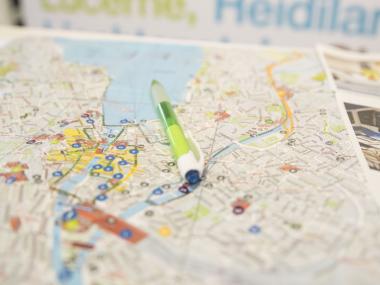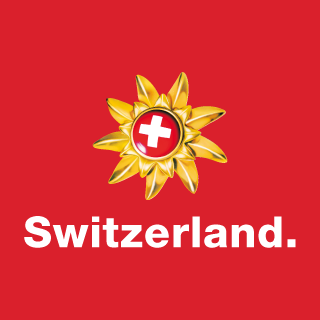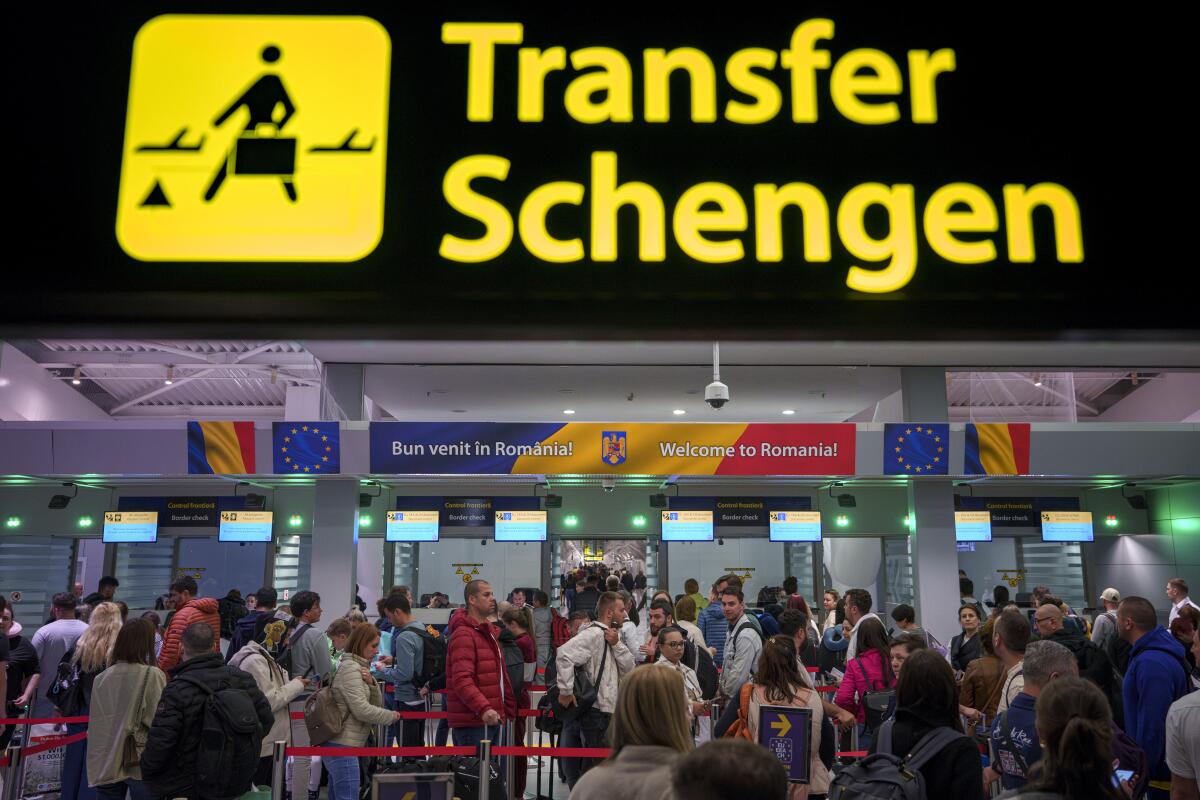- Table of contents
Please find below all the necessary information about the visa requirements for your private or tourist visit. Moreover, you will learn more about how to apply for a visa extension or for a return visa.

Private or tourist visit requiring a visa
The Swiss representations abroad are in charge of issuing visitor and tourist visas.
- Do I require a visa?
- Fact sheet of the Swiss State Secretariat for Migration (SEM)
Important comment on permanent residence in Switzerland
A visitor visa or tourist visa is only valid for a temporary stay in Switzerland of up to a maximum of 90 days. If you wish to take up permanent residence in Switzerland, you must apply for an entry permit and state the purpose of your stay. The following links will guide you directly to the respective information pages.
- Entry of third-country nationals without gainful employment
- Family reunification of third-country nationals
- Entry of third-country nationals with gainful employment
Visa extensions
Visa extensions may be granted in case of force majeure or if humanitarian or serious personal reasons prevail. In order for us to assess the situation, we need to see you personally at our office. If you are on a private visit, your personal guarantor is required to accompany you. If a visa extension involves children or adolescents under the age of 18, a parent or legal guardian must be present as well.
The following situations do not represent important reasons justifying a visa extension:
- awaiting a decision on permanent residence in Switzerland
- taking care of family members
- medical treatment unless it is an emergency in-patient treatment
- business reasons
- organizational reasons (e.g. personal assistance is required, no travel experience, communication problems)
The guarantor must be domiciled in the Canton of Zurich. Moreover, it must be the same person who committed himself/herself in the visa application submitted to the Swiss representation abroad.
The respective commitment may be signed by a solvent Swiss citizen, a legal entity registered in the Commercial Register, or by a foreign national with a valid residence or settlement permit and a registered place of residence in the Canton of Zurich.
Apply for visa extension
- Download Formular Visa-Verlängerung PDF | 4 Pages | Deutsch | 225 KB
Return visa
You will require a return visa if your visit is not governed by a permit. However, such return visa is only issued if one of the following requirements is fulfilled:
- if you meet the requirements related to residence in Switzerland, but your residence or settlement permit is temporarily not in your possession;
- if your application for a residence permit is pending and the Migration Office authorized you to stay here during the application procedure; or
- if the Migration Office or Residents’ Registration Office is reviewing your application to extend your residence or settlement permit and you wish to go on holidays.
In order for us to assess the situation, we need to see you personally at our office. If children under the age of 18 are involved, a parent or legal guardian must be present as well.
There is no legal entitlement to a return visa.
Further information
Use the accordion controls to toggle the visibility of each panel (below the controls).
Fact sheets & downloads
- Download SchengenVISA und Ihre Personendaten PDF | 5 Pages | Deutsch | 78 KB
- Download Visumverlängerung PDF | 11 Pages | Deutsch | 391 KB
- Download Durchsetzung der Einreisevorschriften PDF | 10 Pages | Deutsch | 380 KB
- Download Erteilung eines Rückreisevisums PDF | 9 Pages | Deutsch | 379 KB
ch.zh.web.internet.core.components.feedback.pleasegivefeedback
Is this page comprehensible, thank you for your feedback, migrationsamt.
Montag bis Freitag 08.00 bis 16.30 Uhr
Öffnungszeiten Ostern
Am Donnerstag, 28. März 2024, schliesst das Migrationsamt bereits um 14.30 Uhr und bleibt über die Osterfeiertage geschlossen. Gerne sind wir am Dienstag, 2. April 2024, wieder für Sie da.
Montag bis Freitag 08.00 bis 12.00 Uhr und 13.00 bis 16.30 Uhr
Wenn Sie uns Ihr Anliegen auf elektronischem Weg mitteilen möchten, nutzen Sie bitte das Kontaktformular. Wir verfügen über keine E-Mail-Adresse.
Weiterführende Informationen zu unserer Praxis finden Sie hier
Immigration Regulations for Foreigners Traveling to Zurich
Who needs a visa to travel to Switzerland and what regulations apply to EU citizens or US nationals who are planning to stay in Zurich and Switzerland for a longer period of time? What is a Schengen Visa, and what points should be observed in regard to work permits?
All of these questions are answered by the Federal Department of Foreign Affairs FDFA and the State Secretariat for Migration SEM. The Migration Office of the Canton of Zurich can also help.
The key information about immigration regulations and border control at Zurich Airport can be found via the following links.
- Federal Department of Foreign Affairs FDFA
- State Secretariat for Migration SEM
- Migration Office of the Canton of Zurich
- Entry Requirements and Border Control at Zurich Airport
- More Information About the Schengen Visa
Other Stories You Might Like
Multifaceted Zurich

Zürich Card
All benefits, information, and prices at a glance.

Practical Information
The most useful tips for a perfect stay in Zurich at a glance.

Top 10 Tourist Attractions
Here are the 10 most famous sights in Zurich.

Famous People
Influential personalities and international celebrities who have lived in Zurich.
Who needs a visa? Open accordion
Citizens of EU and EFTA (Iceland, Liechtenstein, Norway, Switzerland) member states do not require a visa to enter Switzerland.
If you come from another country, whether or not you need a visa depends on your nationality. The website of the State Secretariat for Migration provides you with an overview of ID and visa provisions according to nationality .
Switzerland belongs to the Schengen Area*. If you have a visa issued by a Schengen member state, you generally do not require an additional tourist visa to enter Switzerland or any other Schengen country. Your stay must not exceed 90 days in any 180-day period.
If you have one of the following Swiss residence permits, you do not require a visa to enter Switzerland or another Schengen country for a maximum of 90 days in any 180-day period. This applies regardless of your nationality:
B permit (residence permit)
C permit (settlement permit)
L permit (short-term residence permit)
Ci permit (resident permit with gainful employment)
Legitimation card issued by the Federal Department of Foreign Affairs
*The 27 Schengen member states are: Austria, Belgium, Croatia, Czech Republic, Denmark, Estonia, Finland, France, Greece, Germany, Hungary, Iceland, Italy, Latvia, Liechtenstein, Lithuania, Luxembourg, Malta, Netherlands, Norway, Poland, Portugal, Slovakia, Slovenia, Spain, Sweden, Switzerland.
How can I obtain a visa? Open accordion
Complete a form.
There two types of visa application form .
Schengen visa for up to 90 days (Type C): This type of visa is for a stay of up to 90 days, for example for tourist purposes, to study or to participate in a cultural or sporting event. It is valid for travel throughout the Schengen Area.
If you wish to work in Switzerland, you must additionally apply for a work permit .
Long-stay visa for more than 90 days (Type D): If you wish to stay for longer than 90 days, you must apply for a Type D visa.
Submitting a visa application
You must submit a visa application to a Swiss consulate or embassy , preferably at least two months but no longer than six months before you travel.
In certain cases, you can submit your application via the online visa system .
To travel abroad from Switzerland, you must submit your visa application to the consulate or embassy of the appropriate country in Switzerland.
Additional documents
Depending on your country of origin, the Swiss consulate or embassy where you submit your visa application may request additional documents, even if you are only applying for a tourist visa. The documents may include:
Letter of invitation: The letter must be in German, French or Italian and confirm that your Swiss host (private individual or company) is expecting you. It must contain information on the length of and reason for your stay, your personal data (first name(s), surname, date of birth, nationality) and the personal data of your host. The letter must be dated and signed by your host. Further information on the letter of invitation is available in the SEM factsheet .
Declaration of sponsorship: If the Swiss consulate or embassy doubts you have sufficient financial means for your stay in Switzerland, you may have to submit a declaration of sponsorship before you are granted a visa. In this declaration, your host must confirm that they will pay for uncovered costs up to a maximum of CHF 30,000. Your host must sign the declaration and deposit it with the communal authority of his or her place of residence or with the cantonal migration authority. Further information on the declaration of sponsorship is available on the SEM website .
Travel health insurance For a short-term visa (maximum of 90 days) you must prove that you have travel health insurance that covers costs of up to EUR 30,000. The insurance policy must be with an insurance company that is recognised by the consulate or embassy processing your visa application
How much does a visa cost? Open accordion
A visa for an adult costs EUR 80.
A visa for a child (6 to 12 years) costs EUR 40.
Visas for children under 6 are free of charge.
In certain cases, the cost of a visa may be lowered or lifted completely. The cost of a long-stay visa for more than 90 days (Type D) may be increased by 50%.
What to do if you lose your travel document Open accordion
If you lose your travel document, you must report the loss immediately to the nearest police station (web page in German, French and Italian) where you are staying. You can speed up the procedure by providing a copy of your travel document.
A leaflet describes what to do if you lose your travel document in Switzerland and how to replace your visa.
Further information Open accordion
State Secretariat for Migration SEM: Overview of ID and visa provisions according to nationality .
Information on tourist visas: Foreign representations in Switzerland .
Tourist visa for Switzerland: List of Swiss representations abroad (in French and German)
State Secretariat for Migration: Frequently asked questions about entering Switzerland
Situation in Haiti March 29, 2024
U.s. citizens in haiti, update january 10, 2024, information for u.s. citizens in the middle east.
- Travel Advisories |
- Contact Us |
- MyTravelGov |
Find U.S. Embassies & Consulates
Travel.state.gov, congressional liaison, special issuance agency, u.s. passports, international travel, intercountry adoption, international parental child abduction, records and authentications, popular links, travel advisories, mytravelgov, stay connected, legal resources, legal information, info for u.s. law enforcement, replace or certify documents.
Before You Go
Learn About Your Destination
While Abroad
Emergencies
Share this page:
Switzerland
Travel Advisory July 26, 2023
Switzerland - level 1: exercise normal precautions.
Reissued with obsolete COVID-19 page links removed.
Exercise normal precautions in Switzerland.
Read the country information page for additional information on travel to Switzerland.
If you decide to travel to Switzerland:
- Enroll in the Smart Traveler Enrollment Program ( STEP ) to receive Alerts and make it easier to locate you in an emergency.
- Follow the Department of State on Facebook and Twitter .
- Review the Country Security Reports for Switzerland.
- Visit the CDC page for the latest Travel Health Information related to your travel.
- Prepare a contingency plan for emergency situations. Review the Traveler’s Checklist .
Embassy Message
Security alerts and warnings.
View Alerts and Messages Archive
Quick Facts
Valid for at least six months after your planned date of departure from the Schengen area
No visa required for visits of 90 days or less
No legal requirement
No restrictions; officers may question over 10,000 Swiss Francs (CHF)
Embassies and Consulates
U.s. embassy bern.
Sulgeneckstrasse 19 3007 Bern, Switzerland Mailing address: P.O. 3259, 3001 Bern, Switzerland Emergency Telephone: + (41) (31) 357-7011 Fax: + (41) (31) 357-7280 Contact form The Consular Section at the U.S. Embassy provides routine and emergency services for U.S. citizens. The Embassy requires appointments for routine consular services. Please schedule appointments through the online appointment system for U.S. Citizens Services. Additional information is available on the Embassy’s website , Facebook , and Twitter .
When calling from within Switzerland, drop the country code and add a zero. For example: + 41 31 357-7011 becomes 031 357-7011.
Consular Agencies
There are two part-time consular agencies in Switzerland. They provide limited services to U.S. citizens by appointment only. Please visit our website for more information on available services.
U.S. Consular Agency Geneva Geneva America Center Rue Francois-Versonnex 7 1207 Geneva, Switzerland Mailing address: P.O. Box 3259, 3001 Bern, Switzerland
U.S. Consular Agency Zurich Zurich America Center Dufourstrasse 101 8008 Zurich, Switzerland Mailing address: P.O. Box 3259, 3001 Bern, Switzerland
Destination Description
See the Department of State’s website www.state.gov for information on U.S. - Switzerland relations and read our Top Tips for Americans Visiting Switzerland .
Entry, Exit and Visa Requirements
Visit the website of the Embassy of Switzerland in Washington, D.C. for the most current visa information.
Traveling Through Europe : If you are planning to visit or travel through European countries, you should be familiar with the requirements of the Schengen Agreement.
- Your passport should be valid for at least three months beyond the period of stay if you plan on transiting a Schengen country review our U.S. Travelers in Europe page.
- You will need s ufficient proof of funds and a return plane ticket .
- For additional information about visas for the Schengen area, see the Schengen Visa page.
The U.S. Department of State is unaware of any HIV/AIDS entry restrictions for visitors or foreign residents in Switzerland.
Find information on dual nationality , prevention of international child abduction and customs regulations on our websites.
Safety and Security
Terrorism: Terrorist groups and those inspired by such organizations are intent on attacking U.S. citizens abroad. Terrorists are increasingly using less sophisticated methods of attack – including knives, firearms, and vehicles – to more effectively target crowds. Frequently, their aim is unprotected or vulnerable targets, such as:
- High-profile public events (sporting contests, political rallies, demonstrations, holiday events, celebratory gatherings, etc.)
- Hotels, clubs, and restaurants frequented by tourists
- Places of worship
- Shopping malls and markets
- Public transportation systems (including subways, buses, trains, and scheduled commercial flights)
The local equivalent to the “911” emergency number in Europe, including Switzerland, is “112.” You can also directly dial 144 for medical emergencies, 117 for the police, and 118 for the fire department.
Demonstrations occur frequently. They may take place in response to political or economic issues, on politically significant holidays, and during international events.
- Even demonstrations intended to be peaceful can turn confrontational and possibly become violent.
- Avoid areas around protests and demonstrations.
- Check local media for updates and traffic advisories.
- Monitor media and local information sources as well as Embassy Bern’s safety and security webpage , and factor updated information into personal travel plans and activities.
- Address specific safety concerns to law enforcement authorities in Switzerland.
Crime: The majority of crimes directed against foreign visitors, including U.S. citizens, involve pick-pocketing, vehicle break-ins, bicycle theft, and other forms of theft.
- Do not leave bags unattended. Most reported thefts occur at crowded tourist sites, at airports, car rental agencies, on public buses, trams and trains, and at the major railway stations.
- Visitors to congested and popular tourist areas (e.g., museums, monuments, train stations, airports, and subways) should be particularly attentive to their surroundings.
- Be alert to criminal schemes. Organized groups of pick-pockets operate at major tourist sites and when conferences, festivals, shows, or exhibitions occur. Thieves frequently work in pairs. For example, one member of the pair creates a disturbance while the other steals your belongings.
- While the incidence of sexual assault is statistically low, attacks do occur. See our travel tips for Women Travelers .
- In many countries around the world, counterfeit and pirated goods are widely available. Transactions involving such products may be illegal under local law. In addition, bringing them back to the United States may result in forfeitures and/or fines.
Victims of Crime: Report crimes to the local police at 117, and contact the U.S. Embassy at +41 31 357-7011. Remember that local authorities are responsible for investigating and prosecuting the crime.
See our webpage on help for U.S. victims of crime overseas .
- Assist you in reporting a crime to the police
- Help you find appropriate medical care
- Contact relatives or friends with your written consent
- Explain the local criminal justice process in general terms
- Provide a list of local attorneys
- Provide information on victim’s compensation programs in the U.S.
- Provide an emergency loan for repatriation to the United States and/or limited medical support if you are destitute
- Help you find accommodation and arrange flights home
- Replace a stolen or lost passport
Alpine hazards: Switzerland is a popular destination for outdoor sports enthusiasts, including skiing, hiking, and mountain climbing. Alpine hazards such as avalanches and snowdrifts, landslides and flooding, glacial crevasses, falling rocks, sun exposure, and sudden weather changes are common year-round. Although safety standards are excellent, visitors need to be aware that public safety warnings are not comparable to those found in the United States. While hiking paths and ski slopes are clearly marked, not all possibly hazardous situations will have clear warning signs. People are expected to use common sense and caution when enjoying the outdoors.
People should:
- Stay on designated paths or slopes
- Follow the advice given by local authorities and guides
- Take note of weather forecasts and conditions
- Be in a team of two when participating in mountain activities
- Inform someone of your plans and anticipated time of return
Mountain rescues can be extremely expensive and we recommend that you have sufficient insurance coverage that includes coverage for mountain search and rescue. See our website for more information on overseas insurance coverage . The non-profit foundation Swiss Air Rescue Organization (REGA) offers a membership that waives the costs of rescue missions; many Swiss citizens are members and U.S. citizens are able to join as well.
Domestic Violence: U.S. citizen victims of domestic violence may contact the Embassy for assistance. Local organizations offer counseling and assistance for victims of crime .
International Financial Scams: See the Department of State and the FBI pages for information on scams.
Tourism: The tourism industry is generally regulated and rules with regard to best practices and safety inspections are regularly enforced. Hazardous areas/activities are identified with appropriate signage and professional staff is typically on hand in support of organized activities. In the event of an injury, appropriate medical treatment is widely available throughout the country. Outside of a major metropolitan center, it may take more time for first responders and medical professionals to stabilize a patient and provide life-saving assistance. U.S. citizens are encouraged to purchase medical evacuation insurance .
Local Laws & Special Circumstances
Criminal Penalties: You are subject to local laws. If you violate local laws, even unknowingly, you may be expelled, arrested, or imprisoned. Individuals establishing a business or practicing a profession that requires additional permits or licensing should seek information from the competent local authorities, prior to practicing or operating a business.
Furthermore, some laws are also prosecutable in the U.S., regardless of local law. For examples, see our website on crimes against minors abroad and the Department of Justice website.
Arrest Notification: If you are arrested or detained, ask police or prison officials to notify the U.S. Embassy immediately. See our webpage for further information.
Swiss Banking : Most major credit cards are widely accepted, but many vendors will only accept chip-and-PIN cards. ATMs are widely available and accept U.S. debit cards. Numerous banks do not accept U.S. citizens as clients. Please see the Embassy’s website for more information on banking in Switzerland.
Faith-Based Travelers: See the following webpages for details:
- Faith-Based Travel Information
- International Religious Freedom Report – see country reports
- Human Rights Report – see country reports
- Hajj Fact Sheet for Travelers
- Best Practices for Volunteering Abroad
LGBTI Travelers: There are no legal restrictions on same-sex relationships or the organization of LGBTI events in Switzerland.
See our LGBTI Travel Information page and section 6 of our Human Rights report for further details.
Travelers Who Require Accessibility Assistance: While in Switzerland, individuals with disabilities may find accessibility and accommodation very different from what you find in the United States. Many sidewalks are narrow and uneven, and cobblestone streets can make access difficult, but most major tourist areas have better facilities. Please see the website of the Swiss National Tourist Office for more information.
Students: See our Students Abroad page and FBI travel tips .
Women Travelers: See our travel tips for Women Travelers .
For emergency services in Switzerland dial 144, or 117 for the police.
Medical care is comparable to that found in the United States. Ambulance services are widely available.
The U.S. government does not pay medical bills. Be aware that U.S. Medicare does not apply overseas. Swiss medical facilities and care providers will ask for you to settle your bills onsite and you will have to claim a refund with your insurer later. It is common for hospitals to ask for a deposit to ensure medical costs will be covered.
Medical Insurance: Make sure your health insurance plan provides coverage overseas. Most care providers overseas only accept cash payments. See our webpage for more information on insurance providers for overseas coverage. Visit the U.S. Centers for Disease Control and Prevention for more information on type of insurance you should consider before you travel overseas.
Mental Health Resources : Under local law assisted suicide is legal in Switzerland, and several known organizations facilitate assisted suicide to consenting adults. If you or someone you know is experiencing a mental health crisis, help is available and is free and anonymous. For those in the United States, please contact the National Suicide Prevention Hotline by dialing 988 from a phone in the United States. For those in Switzerland, please contact Die Dargebotene Hand (The Helping Hand), a service aimed at adults, by dialing 143 from a phone in Switzerland (assistance is available in English, German, French, and Italian); or Pro Joventute (For the Children), a service aimed at youth, by dialing 147 from a phone in Switzerland (assistance available in German, French, and Italian).
Medications: Over-the-counter medicine is available at pharmacies and a pharmacist is on call 24/7. Information regarding the pharmacy and pharmacist on duty in your area can be obtained over the medical emergency telephone line by dialing 144. If traveling with prescription medication, check with the Swiss Federal Customs Administration to ensure the medication is legal in Switzerland. Always carry your prescription medication in original packaging with your doctor’s prescription.
Vaccinations: Be up-to-date on all vaccinations recommended by the U.S. Centers for Disease Control and Prevention.
- Tick-borne encephalitis (TBE) is common. Travelers planning high-risk activities (camping, adventure travel) should take precautions. See the website of the U.S. Centers for Disease Control and Prevention (CDC) for more details on TBE and TBE prevention.
Further health information:
- World Health Organization
- U.S. Centers for Disease Control and Prevention (CDC)
Travel and Transportation
Road Conditions and Traffic Safety: Road conditions are generally excellent, but traffic, engineering, and driving habits pose special dangers.
- Lane markings and sign placements may differ from those in the United States. Drivers should be prepared to make last-minute maneuvers and stops.
- Be aware that pedestrians, bikers, and trams generally have the right-of-way.
- In alpine areas roads may become dangerous due to snowfall, ice, or avalanches. Some mountain roads may close for extended periods.
- In some mountain areas, vehicle snow chains are required in the winter.
- Roundabouts are very common in Switzerland.
- The maximum speed limit on motorways is 120 km/h, on expressways it is 100 km/h, on roads outside urban areas it is 80 km/h, and in urban areas it is 50 km/h. Neighborhoods are typically 30 km/h.
Accidents: In the event of a traffic accident, call the police immediately at 117. Call 118 for the fire department and 144 for medical/ambulance services. 144 functions as the equivalent to the “911” emergency number in the United States.
Toll roads: If you plan to drive on motorways in Switzerland you must purchase a toll sticker (vignette), which must be affixed to the car’s windshield. These are available online, at gas stations, and at border crossings. Rental cars usually have a vignette already; be sure to check with your car rental agency. Failure to comply with traffic rules can result in large fines. For more information visist the website of the Swiss Federal Customs Administration .
Traffic Laws and Fines: While driving in Switzerland you are subject to local traffic laws.
- The minimum age to operate a motor vehicle in Switzerland is 18.
- The maximum allowable blood-alcohol content in the Switzerland is 0.05 percent (0.5 per mille).
- All vehicles are required to travel with their headlights on at all times.
- Use of cellular devices for talking or texting while driving is prohibited.
- Right-of-way rules differ from those in the United States. Unless specifically indicated otherwise, drivers entering intersections from the right have priority over those on the left, even when entering relatively large boulevards from small side streets.
- Turning right on red is illegal.
- Speeding fines vary between 20 and 300 Swiss Francs. If you exceed the speed limit significantly or engage in reckless driving the traffic violation can be referred to the public prosecutor. Public prosecutors commonly impose monetary deposit/bail on foreign visitors, which can be over 1,000 Swiss Francs. Please note that a traffic violation that is referred to the prosecutor will incur significant cost in addition to the actual fine.
See the website of the Swiss National Tourism Office or the website of the Confederation of Swiss Cantons and Communes for additional information.
Driving in Switzerland: You may drive in Switzerland with your valid U.S. license for up to one year after your arrival; then you must obtain a Swiss permit. Swiss licenses are only issued on the basis of valid U.S. licenses. Holders of expired U.S. licenses must take the Swiss driving test when applying for a Swiss license. The minimum age for driving or learning to drive is 18. Liability insurance on motor vehicles is compulsory in Switzerland and must be provided by a Swiss insurance company.
Public Transportation: Public transport in Switzerland is excellent, punctual, and safe. The websites of the Swiss Federal Railways (SBB) and the Swiss National Tourist Office are the best places to obtain information on fares and timetables.
- Travelers must purchase train, bus or tram tickets and validate them by punching them in validating machines prior to boarding (machines can be found near the entrance of train stations or tram and bus stops). Tickets cannot be bought on the train, bus, or tram. Failure to follow this procedure may result in an on-the-spot fine by an inspector. If the violator does not pay the fine on the spot, it will automatically double.
- Be aware of pick-pockets and do not leave bags unattended. Most reported thefts occur on public buses, trams and trains, and at the major railway stations.
For more information visit the website of the Swiss Federal Office of Transport (FOT) , which is responsible for public transport in Switzerland.
See our Road Safety page for more information.
Aviation Safety Oversight: The U.S. Federal Aviation Administration (FAA) assessed the government of Switzerland’s Civil Aviation Authority as being in compliance with International Civil Aviation Organization (ICAO) aviation safety standards for oversight of Switzerland’s air carrier operations. Further information may be found on the FAA’s safety assessment page .
For additional travel information
- Enroll in the Smart Traveler Enrollment Program (STEP) to receive security messages and make it easier to locate you in an emergency.
- Call us in Washington, D.C. at 1-888-407-4747 (toll-free in the United States and Canada) or 1-202-501-4444 (from all other countries) from 8:00 a.m. to 8:00 p.m., Eastern Standard Time, Monday through Friday (except U.S. federal holidays).
- See the State Department’s travel website for the Worldwide Caution and Travel Advisories .
- Follow us on Twitter and Facebook .
- See traveling safely abroad for useful travel tips.
Review information about International Parental Child Abduction in Switzerland . For additional IPCA-related information, please see the International Child Abduction Prevention and Return Act ( ICAPRA ) report.
Travel Advisory Levels
Assistance for u.s. citizens, switzerland map, learn about your destination, enroll in step.

Subscribe to get up-to-date safety and security information and help us reach you in an emergency abroad.
Recommended Web Browsers: Microsoft Edge or Google Chrome.
Check passport expiration dates carefully for all travelers! Children’s passports are issued for 5 years, adult passports for 10 years.
Afghanistan
Antigua and Barbuda
Bonaire, Sint Eustatius, and Saba
Bosnia and Herzegovina
British Virgin Islands
Burkina Faso
Burma (Myanmar)
Cayman Islands
Central African Republic
Cote d Ivoire
Curaçao
Czech Republic
Democratic Republic of the Congo
Dominican Republic
El Salvador
Equatorial Guinea
Eswatini (Swaziland)
Falkland Islands
France (includes Monaco)
French Guiana
French Polynesia
French West Indies
Guadeloupe, Martinique, Saint Martin, and Saint Barthélemy (French West Indies)
Guinea-Bissau
Isle of Man
Israel, The West Bank and Gaza
Liechtenstein
Marshall Islands
Netherlands
New Caledonia
New Zealand
North Korea (Democratic People's Republic of Korea)
Papua New Guinea
Philippines
Republic of North Macedonia
Republic of the Congo
Saint Kitts and Nevis
Saint Lucia
Saint Vincent and the Grenadines
Sao Tome and Principe
Saudi Arabia
Sierra Leone
Sint Maarten
Solomon Islands
South Africa
South Korea
South Sudan
The Bahamas
Timor-Leste
Trinidad and Tobago
Turkmenistan
Turks and Caicos Islands
United Arab Emirates
United Kingdom
Vatican City (Holy See)
External Link
You are about to leave travel.state.gov for an external website that is not maintained by the U.S. Department of State.
Links to external websites are provided as a convenience and should not be construed as an endorsement by the U.S. Department of State of the views or products contained therein. If you wish to remain on travel.state.gov, click the "cancel" message.
You are about to visit:
Navigation auf uzh.ch
UZH for International Students and Scholars
Quicklinks und sprachwechsel, main navigation, visa, entry and residence permit.

To ensure a smooth transition, we have prepared a list of the most important points to consider before and shortly after arrival – from Swiss entry regulations to registering at the right district office in Zurich.
uzh-wcms-publications.subpageListDialog.labelUnterseiten
- Preparing Your Entrance Documents
- Before Arriving
- Arriving in Zurich
- First Steps Upon Arrival
- Registration in Zurich
- Go to navigation
- Go to main content
- Go to search
- Go to footer
Main content
Entry regulations
Find out in good time the entry regulations of your travel destination as well as any necessary Covid documents and passport/visa requirements.
Entry into Switzerland
Here you can find information about entry into and transit through Switzerland.
Covid travel regulations
Covid entry regulations may be subject to last-minute changes.
To stay well informed at all times, you can find all the latest information on our Info Hub (free of charge).
General entry regulations
Remember to find out about the entry regulations of your destination country in good time. Make sure your passport has been signed and that it complies with the requirements of all the countries you will be visiting. Apply for any necessary visas in good time. You can find more information about this on the IATA website.
We’re sorry, this site is currently experiencing technical difficulties. Please try again in a few moments. Exception: request blocked
Navigate to myswitzerland.com
Destinations
Your swiss holiday time.
Holiday destinations
- Summer holiday destinations
- Winter sports & ski resorts
- Family destinations
Attractions
- Top attractions
- UNESCO World Heritage sites / biospheres
- Travel by train, bus or boat
- Top museums
- Swiss Parks
- Scenic nature
Experiences
Additional content about subnavigation experiences.
- Family excursions
- Food & Wine
- Group excursions
- Guided tours
Summer & Autumn
- Bicycle & Mountain bike
- Adventure & Sports Summer
- Zoo & animal experiences
- Ski and snowboard
- Cross-country skiing
- Snowshoe and winter hiking
- Tobogganing
- Winter excursions
- Christmas in Switzerland
Cities & culture
- Parks, Gardens and Squares
- Architecture
Experience Tour
- Car, motorcycle - Grand Tour
- Train, bus, boat – Grand Train Tour
- Mountain excursions
Accommodation
- Typically Swiss Hotels
- Wellness & Spa
- Family Hotels
- Bike Hotels
- Boutique Hotels
- Inspiring Meeting Hotels
- Swiss Historic Hotels
- Luxury hotels
- Winter sports hotels
Other types of accommodation
- On the farm
- Bed and Breakfast
- Mountains huts
- Group accommodation
Transport & Stay
- Travel to Switzerland
- Barrier-free travel
- Tickets public transport
- Service & support
- Money and shopping
About Switzerland
- General facts
- Custom and tradition
- History of Switzerland
- The Swiss Art and Culture Scene
- Health Travel
- Sustainability
Weather & Climate
- Climate in Switzerland
- Snow Report
- Water and pool temperatures
- City offers
- Touring offers
- Wellness offers
- Nature and outdoor offers
- Offers for families
Where are you from?
- België (Nederlands)
- Belgique (Français)
- Deutschland
- Netherlands
- Russia (Россия)
- Schweiz (Deutsch)
- Suisse (Français)
- Svizzera (Italiano)
- Switzerland (English)
- United Kingdom
- Canada (English)
- Canada (Français)
- China 中文简体
- China 中文繁体
- Gulf countries العربية
- Japan 日本
- Korea 한국어
- United Arab Emirates
- New Zealand
- International

Language, region and important links
- Slovenština
Service Navigation
- Help & Contact
Visa regulations for Indian passport holders
Schengen visa for a stay up to 90 days For persons wishing to enter Switzerland for a short stay of up to 90 days within a 180-day period: for example, in a context of tourism, a visit to relatives or friends, short-term language studies, participating in a conference or in sporting/cultural events, etc. National visa for a stay of more than 90 days For persons wishing to enter Switzerland for a stay of more than 90 days within a 180-day period. It is subject to the authorisation of the cantonal migration authority competent for the intended place of residence. For example: long-term student, family reunification, marriage in Switzerland, etc. Labour / Work permits Admission of foreign workers to an employer in Switzerland is subject to the authorisation of the competent cantonal authority. The entry visa is granted only when the requested authorisations have been delivered. Indian passport holders are not obliged to hold an Airport Transit Visa. Hence, transit through Switzerland and stay at the airport international transit area is permitted without any visa. Please note that Switzerland Tourism has no authority related to granting or declining a visa.
Regulations for pets
Information on the import of animals to Switzerland
Customs entry regulations
Duty and tax free imports per person:
Cookies on GOV.UK
We use some essential cookies to make this website work.
We’d like to set additional cookies to understand how you use GOV.UK, remember your settings and improve government services.
We also use cookies set by other sites to help us deliver content from their services.
You have accepted additional cookies. You can change your cookie settings at any time.
You have rejected additional cookies. You can change your cookie settings at any time.
- Passports, travel and living abroad
- Travel abroad
- Foreign travel advice
Switzerland
Entry requirements.
This advice reflects the UK government’s understanding of current rules for people travelling on a full ‘British citizen’ passport from the UK, for the most common types of travel.
The authorities in Switzerland set and enforce entry rules. If you’re not sure how these requirements apply to you, contact the Embassy of Switzerland in the UK .
COVID-19 rules
Countries may restrict travel or bring in rules at short notice. Check with your travel provider for changes.
If you test positive for COVID-19, you may need to stay where you are until you test negative. You may also need to get treatment there.
Read TravelHealthPro’s general COVID-19 advice for travellers .
Travel to Switzerland
There are no COVID-19 testing or vaccination requirements for people entering Switzerland.
More information is available from the Federal Office of Public Health or by calling the Coronavirus Infoline on +41 58 463 00 00 (7am to 5pm GMT). Assistance is available in English.
Public spaces
Cantons (administrative area) may impose further restrictions. Check cantonal websites for more details.
Passport validity requirements
If you’re planning to travel to an EU country (except Ireland), or Switzerland, Norway, Iceland, Liechtenstein, Andorra, Monaco, San Marino or Vatican City, you must follow the Schengen area passport requirements .
Your passport must be:
- issued less than 10 years before the date you enter the country (check the ‘date of issue’)
- valid for at least 3 months after the day you plan to leave (check the ‘expiry date’)
You must check your passport meets these requirements before you travel. If your passport was issued before 1 October 2018, extra months may have been added to its expiry date.
Contact the Embassy of Switzerland in the UK if you think that your passport does not meet both these requirements. Renew your passport if you need to .
Check with your transport provider or travel company that your passport and other travel documents meet their requirements.
Passport stamping
Check your passport is stamped if you enter or exit the Schengen area through Switzerland as a visitor. Border guards will use passport stamps to check you’re complying with the 90-day visa-free limit for short stays in the Schengen area. If relevant entry or exit stamps are not in your passport, border guards will presume that you have overstayed your visa-free limit.
You can show evidence of when and where you entered or exited the Schengen area and ask the border guards to add this date and location in your passport. Examples of acceptable evidence include boarding passes and tickets.
You can find more information on travel documents on the cantons website website. If you live in Switzerland, read our Living in Switzerland guide for passport stamping information.
Visa requirements
You can travel to countries in the Schengen area for up to 90 days in any 180-day period without a visa. This applies if you travel:
- as a tourist
- to visit family or friends
- to attend business meetings, cultural or sports events
- for short-term studies or training
UK nationals do not need a visa to enter Switzerland. At passport control, UK nationals should use the ‘ALL PASSPORTS’ lane, whatever their residence status.
If you’re travelling to Switzerland and other Schengen countries without a visa, make sure your whole visit is within the 90-day limit. Visits to Schengen countries within the previous 180 days before you travel count towards your 90 days.
To stay longer (to work or study, for business travel or for other reasons), you must meet the Swiss government’s entry requirements. Check which type of visa or work permit you may need with the Swiss Embassy website .
If you are travelling to work in Switzerland , read the guidance on visas and permits.
If you stay in Switzerland with a residence permit or long-stay visa, this does not count towards your 90-day visa-free limit.

Additional documents required by tourists
At Switzerland’s border control, you may need to:
- show proof of your accommodation, for example, a hotel booking confirmation or proof of address if visiting your own property (for example, a second home)
- show proof of insurance for your trip – check FCDO’s travel insurance guidance
- show a return or onward ticket
- prove that you have enough money for your stay – around 100 Swiss francs a day
Customs rules
There are strict rules about goods that you can take into and out of Switzerland. You must declare anything that may be prohibited or subject to tax or duty. There is information about Swiss customs regulations on the cantons website .
Vaccination requirements (other than COVID-19)
At least 8 weeks before your trip, check the vaccinations and certificates you need in TravelHealthPro’s Switzerland guide .
Related content
Is this page useful.
- Yes this page is useful
- No this page is not useful
Help us improve GOV.UK
Don’t include personal or financial information like your National Insurance number or credit card details.
To help us improve GOV.UK, we’d like to know more about your visit today. We’ll send you a link to a feedback form. It will take only 2 minutes to fill in. Don’t worry we won’t send you spam or share your email address with anyone.

Zürich Card
Discover Zurich for a low price: the ideal ticket for those staying in Zurich for 1 to 3 days who would like to combine using public transport with visiting a museum or a recreation area nearby.
The Zürich Card is the perfect ticket for culture fans and city lovers who wish to transform their short break into a travel experience for a small fee. For 24 or 72 hours, the Zürich Card offers:
- Unlimited 2nd class travel by tram, bus, train, boat and cable car throughout the city of Zurich and its surrounding region (zones 110, 111, 121, 140, 150, 154 and 155). Area of validity, Zürich Card (PDF, 92 KB)
- Free or reduced admission to the majority of Zurich’s museums.
- 10 to 20% discount in various local stores.
- Tasty surprise in selected restaurants.
- 50% discount on public city tours organized by Zürich Tourism.
- Many more discounts on a variety of cultural and leisure activities.
>>> buy Zürich Card online
More information
Zürich card sales.
The Zürich Card is available from the following outlets:
- www.zuerich.com/zuerichcard
- ZVV Contact: +41 800 988 988
- ZVV and SBB ticket machines
- ZVV information and sales offices
- Rail stations in the city and local region, and at Zurich Airport
- Service and information desks at Zurich Airport
- ZSG Bürkliplatz sales office and ZSG shipping company
- Tourist Information at the Main Train Station in Zurich
- Various Zurich hotels
Further information
For more details, please visit: www.zuerich.com/zuerichcard .
Validating tickets
Please validate tickets before starting your journey at the ticket machine or ticket validator on the platform.
Zone upgrade/first-class upgrade
To travel outside the area of validity or in first class, passengers must purchase a zone upgrade or first-class upgrade respectively. When combined with a zone upgrade for 4 zones, your Zürich Card is valid in all zones of the ZVV.
- Skip to main content
- Skip to "About this site"
Language selection
Search travel.gc.ca.
Help us to improve our website. Take our survey !
COVID-19: travel health notice for all travellers
Switzerland travel advice
Latest updates: The Need help? section was updated.
Last updated: April 3, 2024 10:57 ET
On this page
Safety and security, entry and exit requirements, laws and culture, natural disasters and climate, switzerland - take normal security precautions.
Take normal security precautions in Switzerland
Back to top
Petty crime, such as pickpocketing and purse snatching, occurs in most public places and particularly in major cities such as:
Thieves are particularly active in airports, railway stations and trains. They often work in teams, one distracting the victim while the other steals the valuables.
Car break-ins occur at gas stations and highway service areas, as well as in parking lots.
- Ensure that your belongings, including your passport and other travel documents, are secure at all times
- Never leave bags containing money, airline tickets, credit cards or passports in the trunk of a parked car and do not leave anything on car seats
- Don't put any valuables or identification in the overhead storage compartments of trains
- Exercise caution on trains, especially on overnight trips
Spiked food and drinks
Never leave food or drinks unattended or in the care of strangers. Be wary of accepting snacks, beverages, gum or cigarettes from new acquaintances. These items may contain drugs that could put you at risk of sexual assault and robbery, particularly in bars and nightclubs.
Credit card and ATM fraud
Credit card and ATM fraud occurs. When using debit or credit cards:
- pay careful attention if other people are handling your cards
- use ATMs located in public areas or inside a bank or business
- avoid using card readers with an irregular or unusual feature
- cover the keypad with one hand when entering your PIN
- check for any unauthorized transactions on your account statements
Cybercrime occurs in Switzerland. Perpetrators may compromise public Wi-Fi networks to steal credit card or personal information.
- Avoid using public Wi-Fi networks
- Avoid making purchases on unsecured websites
- Use judgment when posting information on social media
- Be especially careful if you are meeting people you have met online
- Never click a suspicious link in an email or text message asking for your credit card details
Romance scams
If you’re travelling to Switzerland to meet someone you’ve otherwise only met online, be aware that you may be the victim of a scam.
Be wary of attempts at fraud by persons who profess friendship or romantic interest over the internet.
Never send money.
Useful links
- More about overseas fraud
- Internet crime - Swiss Crime Prevention (in French)
- Skimming - Swiss Crime Prevention (in French)
There is a threat of terrorism in Europe. Terrorists have carried out attacks in several European cities. Terrorist attacks could occur at any time.
Targets could include:
- government buildings, including schools
- places of worship
- airports and other transportation hubs and networks
- public areas such as tourist attractions, restaurants, bars, coffee shops, shopping centres, markets, hotels and other sites frequented by foreigners
Always be aware of your surroundings when in public places. Be particularly vigilant if attending:
- sporting events
- religious holidays
- public celebrations
Terrorists have used such occasions to mount attacks.
Demonstrations
Demonstrations take place from time to time, particularly in Bern, Geneva and Zurich. Even peaceful demonstrations can turn violent at any time. They can also lead to disruptions to traffic and public transportation.
- Avoid areas where demonstrations and large gatherings are taking place
- Follow the instructions of local authorities
- Monitor local media for information on ongoing demonstrations
Mass gatherings (large-scale events)
Mountain activities
Mountain activities, such as hiking, can be dangerous, especially if they are not well-organized.
Weather conditions can change rapidly, even in summer. In winter, heavy snowfall can make it difficult to reach some villages and ski centres. Roads may become impassable. There is also a risk of avalanches, some of which can be fatal, even with light snow accumulations.
If you intend to go hiking, mountaineering or skiing:
- never do so alone and do not part with your hiking companions
- buy travel insurance that includes helicopter rescue and medical evacuation
- ensure that your physical condition is good enough to meet the challenges of your activity
- do not venture off marked trails or slopes
- ensure that you’re adequately equipped
- carry an avalanche beacon
- stay informed about weather and other conditions that may pose a hazard
- inform a family member or friend of your itinerary
- know the symptoms of acute altitude sickness, which can be fatal
- obtain detailed information on your activity and on the environment in which you will be doing it before setting out
- Avalanche bulletin and snow situation - Institute for Snow and Avalanche Research
- Current natural hazards situation in Switzerland - Natural Hazards Portal
- AlertSwiss App - Federal Office for Civil Protection
- Avalanche forecasting and warnings - European Avalanche Warning Services
- Forecast for Switzerland - Federal Office of Meteorology and Climatology
Road safety
Road conditions and safety are very good throughout the country.
Many roads are mountainous and winding. Traffic jams are common, especially in major cities and during rush hour.
Priority to the right
The “priority to the right” system is in effect in Switzerland.
Drivers must give way to vehicles approaching from the right at intersections, even on secondary roads. This is often a surprise to foreign drivers and results in accidents.
Familiarize yourself with the “priority to the right” system.
Latest traffic information - Touring Club Switzerland (in French)
Public transportation
Switzerland has an extensive, reliable and safe public transport network. Train and bus services provide easy access between the country's different regions and cities.
Rail traffic information - Swiss Federal Railways
Taxis are generally safe. Ride-sharing services are also available.
Use only officially marked taxis or use a trusted ride-sharing app.
We do not make assessments on the compliance of foreign domestic airlines with international safety standards.
Information about foreign domestic airlines
Every country or territory decides who can enter or exit through its borders. The Government of Canada cannot intervene on your behalf if you do not meet your destination’s entry or exit requirements.
We have obtained the information on this page from the Swiss authorities. It can, however, change at any time.
Verify this information with the Foreign Representatives in Canada .
- Schengen area
Switzerland is a Schengen area country. Canadian citizens do not need a visa for travel to countries within the Schengen area. However, visa-free travel only applies to stays of up to 90 days in any 180-day period. Stays are cumulative and include visits to any Schengen area country.
If you plan to stay in the Schengen area for a longer period of time, you will need a visa. You must contact the high commission or embassy of the country or countries you are travelling to and obtain the appropriate visa(s) prior to travel.
- Foreign Representatives in Canada
Entry requirements vary depending on the type of passport you use for travel.
Before you travel, check with your transportation company about passport requirements. Its rules on passport validity may be more stringent than the country’s entry rules.
Regular Canadian passport
Your passport must be valid for at least 3 months beyond the date you expect to leave the Schengen area.
Passport for official travel
Different entry rules may apply.
Official travel
Passport with “X” gender identifier
While the Government of Canada issues passports with an “X” gender identifier, it cannot guarantee your entry or transit through other countries. You might face entry restrictions in countries that do not recognize the “X” gender identifier. Before you leave, check with the closest foreign representative for your destination.
Other travel documents
Different entry rules may apply when travelling with a temporary passport or an emergency travel document. Before you leave, check with the closest foreign representative for your destination.
- Foreign Representatives in Canada
- Canadian passports
Tourist visa: not required for stays up to 90 days in any 180-day period Business visa: not required for stays up to 90 days in any 180-day period Student visa: not required for stays up to 90 days in any 180-day period Work visa: required
Other entry requirements
Customs officials may ask you to show them a return or onward ticket and proof of sufficient funds for your stay.
Children and travel
Learn more about travelling with children .
Yellow fever
Learn about potential entry requirements related to yellow fever (vaccines section).
Relevant Travel Health Notices
- Global Measles Notice - 13 March, 2024
- COVID-19 and International Travel - 13 March, 2024
This section contains information on possible health risks and restrictions regularly found or ongoing in the destination. Follow this advice to lower your risk of becoming ill while travelling. Not all risks are listed below.
Consult a health care professional or visit a travel health clinic preferably 6 weeks before you travel to get personalized health advice and recommendations.
Routine vaccines
Be sure that your routine vaccinations , as per your province or territory , are up-to-date before travelling, regardless of your destination.
Some of these vaccinations include measles-mumps-rubella (MMR), diphtheria, tetanus, pertussis, polio, varicella (chickenpox), influenza and others.
Pre-travel vaccines and medications
You may be at risk for preventable diseases while travelling in this destination. Talk to a travel health professional about which medications or vaccines may be right for you, based on your destination and itinerary.
Yellow fever is a disease caused by a flavivirus from the bite of an infected mosquito.
Travellers get vaccinated either because it is required to enter a country or because it is recommended for their protection.
- There is no risk of yellow fever in this country.
Country Entry Requirement*
- Proof of vaccination is not required to enter this country.
Recommendation
- Vaccination is not recommended.
* It is important to note that country entry requirements may not reflect your risk of yellow fever at your destination. It is recommended that you contact the nearest diplomatic or consular office of the destination(s) you will be visiting to verify any additional entry requirements.
About Yellow Fever
Yellow Fever Vaccination Centres in Canada
Tick-borne encephalitis (TBE) is a risk in some areas of this destination. It is a viral disease that affects the central nervous system (brain and spinal cord). It is spread to humans by the bite of infected ticks or occasionally when unpasteurized milk products are consumed.
Travellers to areas where TBE is found may be at higher risk during April to November, and the risk is highest for people who hike or camp in forested areas.
Protect yourself from tick bites . The vaccine is not available in Canada. It may be available in the destination you are travelling to.
Measles is a highly contagious viral disease. It can spread quickly from person to person by direct contact and through droplets in the air.
Anyone who is not protected against measles is at risk of being infected with it when travelling internationally.
Regardless of where you are going, talk to a health care professional before travelling to make sure you are fully protected against measles.
Hepatitis B is a risk in every destination. It is a viral liver disease that is easily transmitted from one person to another through exposure to blood and body fluids containing the hepatitis B virus. Travellers who may be exposed to blood or other bodily fluids (e.g., through sexual contact, medical treatment, sharing needles, tattooing, acupuncture or occupational exposure) are at higher risk of getting hepatitis B.
Hepatitis B vaccination is recommended for all travellers. Prevent hepatitis B infection by practicing safe sex, only using new and sterile drug equipment, and only getting tattoos and piercings in settings that follow public health regulations and standards.
Coronavirus disease (COVID-19) is an infectious viral disease. It can spread from person to person by direct contact and through droplets in the air.
It is recommended that all eligible travellers complete a COVID-19 vaccine series along with any additional recommended doses in Canada before travelling. Evidence shows that vaccines are very effective at preventing severe illness, hospitalization and death from COVID-19. While vaccination provides better protection against serious illness, you may still be at risk of infection from the virus that causes COVID-19. Anyone who has not completed a vaccine series is at increased risk of being infected with the virus that causes COVID-19 and is at greater risk for severe disease when travelling internationally.
Before travelling, verify your destination’s COVID-19 vaccination entry/exit requirements. Regardless of where you are going, talk to a health care professional before travelling to make sure you are adequately protected against COVID-19.
The best way to protect yourself from seasonal influenza (flu) is to get vaccinated every year. Get the flu shot at least 2 weeks before travelling.
The flu occurs worldwide.
- In the Northern Hemisphere, the flu season usually runs from November to April.
- In the Southern Hemisphere, the flu season usually runs between April and October.
- In the tropics, there is flu activity year round.
The flu vaccine available in one hemisphere may only offer partial protection against the flu in the other hemisphere.
The flu virus spreads from person to person when they cough or sneeze or by touching objects and surfaces that have been contaminated with the virus. Clean your hands often and wear a mask if you have a fever or respiratory symptoms.
In this destination, rabies may be present in some wildlife species, including bats. Rabies is a deadly disease that spreads to humans primarily through bites or scratches from an infected animal.
If you are bitten or scratched by an animal while travelling, immediately wash the wound with soap and clean water and see a health care professional.
Before travel, discuss rabies vaccination with a health care professional. It may be recommended for travellers who will be working directly with wildlife.
Safe food and water precautions
Many illnesses can be caused by eating food or drinking beverages contaminated by bacteria, parasites, toxins, or viruses, or by swimming or bathing in contaminated water.
- Learn more about food and water precautions to take to avoid getting sick by visiting our eat and drink safely abroad page. Remember: Boil it, cook it, peel it, or leave it!
- Avoid getting water into your eyes, mouth or nose when swimming or participating in activities in freshwater (streams, canals, lakes), particularly after flooding or heavy rain. Water may look clean but could still be polluted or contaminated.
- Avoid inhaling or swallowing water while bathing, showering, or swimming in pools or hot tubs.
Insect bite prevention
Many diseases are spread by the bites of infected insects such as mosquitoes, ticks, fleas or flies. When travelling to areas where infected insects may be present:
- Use insect repellent (bug spray) on exposed skin
- Cover up with light-coloured, loose clothes made of tightly woven materials such as nylon or polyester
- Minimize exposure to insects
- Use mosquito netting when sleeping outdoors or in buildings that are not fully enclosed
To learn more about how you can reduce your risk of infection and disease caused by bites, both at home and abroad, visit our insect bite prevention page.
Find out what types of insects are present where you’re travelling, when they’re most active, and the symptoms of the diseases they spread.
Animal precautions
Some infections, such as rabies and influenza, can be shared between humans and animals. Certain types of activities may increase your chance of contact with animals, such as travelling in rural or forested areas, camping, hiking, and visiting wet markets (places where live animals are slaughtered and sold) or caves.
Travellers are cautioned to avoid contact with animals, including dogs, livestock (pigs, cows), monkeys, snakes, rodents, birds, and bats, and to avoid eating undercooked wild game.
Closely supervise children, as they are more likely to come in contact with animals.
Person-to-person infections
Stay home if you’re sick and practise proper cough and sneeze etiquette , which includes coughing or sneezing into a tissue or the bend of your arm, not your hand. Reduce your risk of colds, the flu and other illnesses by:
- washing your hands often
- avoiding or limiting the amount of time spent in closed spaces, crowded places, or at large-scale events (concerts, sporting events, rallies)
- avoiding close physical contact with people who may be showing symptoms of illness
Sexually transmitted infections (STIs) , HIV , and mpox are spread through blood and bodily fluids; use condoms, practise safe sex, and limit your number of sexual partners. Check with your local public health authority pre-travel to determine your eligibility for mpox vaccine.
Medical services and facilities
Health care is excellent. It is available throughout the country.
Medical and hospital costs are much higher than in Canada. Immediate payment is usually required.
Make sure you get travel insurance that includes coverage for medical evacuation and hospital stays.
Travel health and safety
Keep in Mind...
The decision to travel is the sole responsibility of the traveller. The traveller is also responsible for his or her own personal safety.
Be prepared. Do not expect medical services to be the same as in Canada. Pack a travel health kit , especially if you will be travelling away from major city centres.
You must abide by local laws.
Learn about what you should do and how we can help if you are arrested or detained abroad .
Transfer to a Canadian prison
Canada and Switzerland are signatories to the Convention on the Transfer of Sentenced Persons. This enables a Canadian imprisoned in Switzerland to request a transfer to a Canadian prison to complete a sentence. The transfer requires the agreement of both Canadian and Switzerland authorities.
This process can take a long time, and there is no guarantee that the transfer will be approved by either or both sides.
Penalties for possession, use or trafficking of illegal drugs are severe. Convicted offenders can expect jail sentences or heavy fines.
Drugs, alcohol and travel
Concealing your face in public places
It is illegal to cover your face in public places. This ban is already in force in several cantons and is expected to be implemented nationwide in 2022.
There is no exemption for tourists or for religious reasons.
Offenders risk a fine.
Dual citizenship
Dual citizenship is legally recognized in Switzerland .
If you are a Canadian citizen, but also a citizen of Switzerland , our ability to offer you consular services may be limited while you're there. You may also be subject to different entry/exit requirements .
Travellers with dual citizenship
Compulsory military service
Swiss male citizens must perform military service, or alternative civilian service.
A man with dual Canadian and Swiss citizenship or who is eligible for Swiss citizenship may also be required to do so.
In peacetime, the Swiss authorities do not generally call up their nationals living abroad for compulsory military service as long as they remain abroad.
Consult a Swiss embassy or consulate before your trip.
- Military service - Information Portal of the Swiss Authorities
- Military service - Swiss Armed forces
- The Swiss abroad - Swiss Armed forces (in French)
International Child Abduction
The Hague Convention on the Civil Aspects of International Child Abduction is an international treaty. It can help parents with the return of children who have been removed to or retained in certain countries in violation of custody rights. The convention applies between Canada and Switzerland.
If your child was wrongfully taken to, or is being held in Switzerland, and if the applicable conditions are met, you may apply for the return of your child to the Swiss court.
If you are in this situation:
- act as quickly as you can
- contact the Central Authority for your province or territory of residence for information on starting an application under The Hague Convention
- consult a lawyer in Canada and in Switzerland to explore all the legal options for the return of your child
- report the situation to the nearest Canadian government office abroad or to the Vulnerable Children’s Consular Unit at Global Affairs Canada by calling the Emergency Watch and Response Centre
If your child was removed from a country other than Canada, consult a lawyer to determine if The Hague Convention applies.
Be aware that Canadian consular officials cannot interfere in private legal matters or in another country’s judicial affairs.
- List of Canadian Central Authorities for the Hague Convention
- International Child Abduction: A Guidebook for Left-Behind Parents
- Travelling with children
- The Hague Convention - Hague Conference on Private International Law
- Canadian embassies and consulates by destination
- Emergency Watch and Response Centre
You must be at least 18 years old to drive in Switzerland.
You can drive with your Canadian licence for up to 12 months. If you stay in Switzerland, you will have to exchange your Canadian licence for a Swiss licence.
To drive on the motorways, you must obtain a vignette and affix it to the windshield of your vehicle.
Valid for one year, this vignette can be purchased:
- at most border crossings
- at tourist offices
- at petrol stations
- at post offices
- online at the Swiss Post website
Drivers who do not display the vignette are liable to heavy fines levied on the spot.
All vehicles must be equipped with a safety kit and a warning triangle for use in the event of a breakdown.
In winter, winter tires are mandatory and snow chains may be required in some mountainous areas.
- Driving in Switzerland on a foreign licence - Embassy of Switzerland to Canada
- Driving in Switzerland - European Commission
- Motorway windscreen stickers - Swiss Post
The currency of Switzerland is the Swiss franc (CHF).
If you are carrying CHF 10,000 or more in cash, you may be subject to a customs check when entering or leaving Switzerland.
Cash, foreign currencies, securities - Federal Office for Customs and Border Security
Flooding and landslides
Heavy rains, particularly in spring and summer, can cause severe flooding and landslides. Roads may become impassable and infrastructure damaged.
- Exercise caution, particularly in areas around major rivers
- Stay informed of the latest regional weather forecasts
- Download the AlertSwiss app to receive important alerts from the Swiss authorities
- Follow the instructions of local authorities, including evacuation orders
There is a risk of avalanches in mountainous regions, especially following heavy snowfalls. Some may be fatal.
Monitor the avalanche forecasts, particularly if you plan on skiing or practicing mountain activities.
- Current avalanche danger - Natural Hazards Portal
Forest fires may occur, particularly during summer.
The air quality in areas near active fires may deteriorate due to heavy smoke.
In case of a major fire:
- stay away from affected areas, particularly if you suffer from respiratory ailments
- monitor local media for up-to-date information on the situation
- follow the instructions of local authorities
Current forest fire danger - Natural Hazards Portal
Local services
In case of emergency, dial:
- for all emergencies: 112
- police: 117
- medical assistance: 144
- firefighters: 118
- REGA Swiss Air Rescue: 1414
- Roadside assistance: 140
Consular assistance
Liechtenstein
For emergency consular assistance, call the Embassy of Canada to Switzerland, in Bern, or if you are in the canton of Geneva, the Permanent Mission of Canada in Geneva, Switzerland, and follow the instructions. At any time, you may also contact the Emergency Watch and Response Centre in Ottawa.
The decision to travel is your choice and you are responsible for your personal safety abroad. We take the safety and security of Canadians abroad very seriously and provide credible and timely information in our Travel Advice to enable you to make well-informed decisions regarding your travel abroad.
The content on this page is provided for information only. While we make every effort to give you correct information, it is provided on an "as is" basis without warranty of any kind, expressed or implied. The Government of Canada does not assume responsibility and will not be liable for any damages in connection to the information provided.
If you need consular assistance while abroad, we will make every effort to help you. However, there may be constraints that will limit the ability of the Government of Canada to provide services.
Learn more about consular services .
Risk Levels
take normal security precautions.
Take similar precautions to those you would take in Canada.
Exercise a high degree of caution
There are certain safety and security concerns or the situation could change quickly. Be very cautious at all times, monitor local media and follow the instructions of local authorities.
IMPORTANT: The two levels below are official Government of Canada Travel Advisories and are issued when the safety and security of Canadians travelling or living in the country or region may be at risk.
Avoid non-essential travel
Your safety and security could be at risk. You should think about your need to travel to this country, territory or region based on family or business requirements, knowledge of or familiarity with the region, and other factors. If you are already there, think about whether you really need to be there. If you do not need to be there, you should think about leaving.
Avoid all travel
You should not travel to this country, territory or region. Your personal safety and security are at great risk. If you are already there, you should think about leaving if it is safe to do so.
Romania and Bulgaria join Europe’s Schengen travel zone but keep land border checks

- Show more sharing options
- Copy Link URL Copied!
Romania and Bulgaria partially joined Europe’s ID-check-free travel zone on Sunday, marking a new step in the two countries’ integration with the European Union.
After years of negotiations to join the Schengen Area , there is now free access for travelers arriving by air or sea from both countries. However, land border checks will remain in place due to opposition primarily from Austria, which has long blocked their bid over illegal migration concerns.
EU Commission President Ursula von der Leyen hailed the change as a “huge success for both countries” and a “historic moment” for what is the world’s largest free travel zone.
Travel & Experiences
Schengen agreement: Understand the 90/180 rule before European travel
Question: Twice a year for more than 10 years, I have been flying to Zurich, Switzerland, from LAX.
March 30, 2015
The Schengen Area was established in 1985. Before Bulgaria and Romania’s admission, Schengen consisted of 23 of the 27 EU member countries, along with Switzerland, Norway, Iceland and Liechtenstein. Around 3.5 million people cross an internal border each day.
Austria vetoed Romania and Bulgaria’s admission into the Schengen zone at the end of 2022 but allowed Croatia full accession. Bulgaria and Romania joined the EU in 2007 and Croatia in 2013.
Siegfried Muresan, a Romanian member of the European Parliament, told the Associated Press that it is “an important first step” that will benefit millions of travelers annually.
“Bulgaria and Romania have been fulfilling all criteria for joining the Schengen Area for years — we are entitled to join with the terrestrial border as well,” he said, adding that it “will offer additional arguments to the last EU member state that has been vetoing the full accession.”

World & Nation
Croatia set to adopt euro currency and borderless EU travel in the new year
As of Jan. 1, Croatia will use the EU’s common currency and join its borderless travel area, a milestone since gaining independence 31 years ago.
Dec. 22, 2022
Romanian Prime Minister Marcel Ciolacu called it a “well-deserved achievement” for Romania that he said will benefit citizens who can travel more easily and will bolster the economy.
“We have a clear and firmly assumed government plan for full accession to the Schengen Area by the end of the year,” he said.
The EU’s executive branch, the European Commission, has said for more than a decade that Romania and Bulgaria both meet the technical criteria for full accession, which requires unanimous support from their partners. Both countries have agreed to implement random security screening at airports and maritime borders to combat illegal migration and cross-border crime.
“Bulgaria’s full accession to Schengen will happen by the end of 2024,” Kalin Stoyanov, Bulgaria’s interior minister, told reporters on Sunday. “We showed and continue to show to illegal migrants that they should not take the road to Europe through Bulgaria.”

EU countries wrestle with a proposed ban on Russian tourists
Northern European Union countries are calling for a broad ban on tourist visas for Russian citizens, but Germany, among other EU members, demurs.
Aug. 31, 2022
The lifting of border control is expected to facilitate operations at Bulgaria’s four international airports, which in 2023 saw nearly 11 million passengers, according to official data.
The airport in the capital, Sofia, serves as the biggest hub for Schengen flights, which constitute 70% of all flights, airport representatives said.
While the eased regulations are expected to positively impact the tourism sector, members of the European Parliament have voiced concerns about long queues at the EU’s land borders and the impact it can have on trade in the bloc’s single market, as well as the health and safety of drivers.
Truck drivers are frequently stuck in kilometers-long queues at the borders of both Romania and Bulgaria. The Union of International Carriers in Bulgaria estimates delays cost the sector tens of millions of euros each year.
Stephen McGrath and Veselin Toshkov write for the Associated Press. McGrath reported from Sighisoara, Romania.
More to Read

Lithuania to close 2 more checkpoints with Russian ally Belarus as tensions along border rise
Feb. 21, 2024

Ukraine gets EU membership boost, but no new European aid, after setback in U.S.
Dec. 15, 2023

In stunning reversal, European Union agrees to open membership talks with Ukraine
Dec. 14, 2023
Start your day right
Sign up for Essential California for news, features and recommendations from the L.A. Times and beyond in your inbox six days a week.
You may occasionally receive promotional content from the Los Angeles Times.
More From the Los Angeles Times

Peter Schey, longtime Los Angeles champion of immigrant rights, dead at 77

Panama and Colombia fail to protect migrants on Darien jungle route, Human Rights Watch says
April 3, 2024

Trump escalates immigration rhetoric, accusing Biden of causing border ‘bloodbath’

Cyprus asks EU Commission chief to get Lebanon to stop migrants from leaving its shores
April 2, 2024
Airport transit visa

Switzerland and the United States of America
Eda.base.components.templates.base.accesskeys.
- Visa & entry to Switzerland
- Visa – Entry to and residence in Switzerland
Do I need an airport transit visa?
List of nationalities obliged to hold an airport transit visa
Where to apply for an airport transit visa?
List of authorities or agencies competent for your visa application according to your place of residence
Which documents should I submit with an airport transit visa application
Requested documentation to submit with your application for an airport transit visa
Schengen and your personal data
Information regarding the SIS, registration of your personal data and the authorities or persons who have access to it
Airport transit visa fees
Information regarding the airport transit visa fees
Start of page Last update 27.11.2017

IMAGES
VIDEO
COMMENTS
A visitor visa or tourist visa is only valid for a temporary stay in Switzerland of up to a maximum of 90 days. If you wish to take up permanent residence in Switzerland, you must apply for an entry permit and state the purpose of your stay. The following links will guide you directly to the respective information pages.
The Migration Office of the Canton of Zurich can also help. The key information about immigration regulations and border control at Zurich Airport can be found via the following links. Federal Department of Foreign Affairs FDFA. State Secretariat for Migration SEM. Migration Office of the Canton of Zurich. Entry Requirements and Border Control ...
To apply for a Switzerland Schengen Visa, you have to follow these steps: Check if you need a visa. Understand the type of visa you need. Determine where to lodge your visa application. Complete and Download the Visa Application Form. Schedule your Swiss visa appointment. Prepare the required documents.
Keep track of your time in the Schengen area: You can travel up to 90 days visa free in Switzerland and the Schengen area. Currently, 26 European countries are members of the Schengen area. Crossing national borders within the Schengen does not count as leaving the Schengen and will not reset the region's 90 day tourist visa. Once you spend ...
At Zurich Airport, automated passport control helps you get to your gate faster. Simply scan your passport and go through the gate yourself. You may use automated passport control if you: are at least 18 years old. have a biometric passport/e-passport (not an ID card) are a citizen of Switzerland or an EU/EEA country.
Visas for foreign nationals. Some foreigners cannot enter Switzerland without a visa. Some citizens of non-European countries who live in Switzerland require a visa to travel abroad. Here you can find out more about whether this applies to you and how you can obtain a visa. Open all.
Call us in Washington, D.C. at 1-888-407-4747 (toll-free in the United States and Canada) or 1-202-501-4444 (from all other countries) from 8:00 a.m. to 8:00 p.m., Eastern Standard Time, Monday through Friday (except U.S. federal holidays). See the State Department's travel website for the Worldwide Caution and Travel Advisories.
Matters relating to consular services. Tel. +41 800 24-7-365 or. Tel. +41 58 465 33 33. 365 days a year - around the clock.
National visa for a stay of more than 90 days. For persons wishing to enter Switzerland for a stay of more than 90 days within a 180-day period. It is subject to the authorisation of the cantonal migration authority competent for the intended place of residence. For example: long-term student, family reunification, marriage in Switzerland, etc.
Visa, Entry and Residence Permit. To ensure a smooth transition, we have prepared a list of the most important points to consider before and shortly after arrival - from Swiss entry regulations to registering at the right district office in Zurich.
General entry regulations. Remember to find out about the entry regulations of your destination country in good time. Make sure your passport has been signed and that it complies with the requirements of all the countries you will be visiting. Apply for any necessary visas in good time. You can find more information about this on the IATA website.
Visas. The purpose of your intended travel and other facts will determine what type of visa is required under U.S. immigration law. As a visa applicant, you will need to establish that you meet all requirements to receive the category of visa for which you are applying. See our Directory of Visa Categories on usvisas.state.gov to determine ...
Schengen visa for a stay up to 90 days For persons wishing to enter Switzerland for a short stay of up to 90 days within a 180-day period: for example, in a context of tourism, a visit to relatives or friends, short-term language studies, participating in a conference or in sporting/cultural events, etc. National visa for a stay of more than 90 days For persons wishing to enter Switzerland for ...
Visa requirements. You can travel to countries in the Schengen area for up to 90 days in any 180-day period without a visa. This applies if you travel: as a tourist. to visit family or friends. to ...
Unlimited 2nd class travel by tram, bus, train, boat and cable car throughout the city of Zurich and its surrounding region (zones 110, 111, 121, 140, 150, 154 and 155). Area of validity, Zürich Card (PDF, 92 KB) Free or reduced admission to the majority of Zurich's museums. 10 to 20% discount in various local stores.
A Switzerland airport transit visa, also known as an A-visa, allows the carrier to transit through a Swiss airport in order to catch a connecting flight to a non-Schengen country. It falls under the short stay visa category of Switzerland. If you have an airport transit visa for Switzerland, you are not allowed to leave the Swiss airport you ...
Entry: UK citizens do not require an entry visa for Switzerland for either short stays (up to 90 days in any 180-day period in the whole Schengen Area) or for long stays (over 90 days). For information on the validity of travel documents of third-country nationals (non EU/EFTA citizens) see Question 3.14 in the Frequently Asked Questions on Entry.
You can choose from a few plans of coverage to suit your travel plans and your pocket. Z-Travel Insurance (International) Lite, our online product is made simpler to cater for a seamless checkout. If you're looking for a more comprehensive plan, you may purchase Z-Travel Insurance (International) via Zurich authorized agents/ our direct branch.
Switzerland is part of the Schengen Zone. As such, your travel insurance for Switzerland has to comply with Schengen Visa insurance requirements, meaning: It must cover medical treatment and evacuation for at least €30,000 (equivalent to 29,200 CHF as of October 2022). It must be valid through the entire Schengen Zone.
Zurich; Thieves are particularly active in airports, railway stations and trains. They often work in teams, one distracting the victim while the other steals the valuables. ... Tourist visa: not required for stays up to 90 days in any 180-day period Business visa: not required for stays up to 90 days in any 180-day period Student visa: not ...
Dapatkan Penawaran. Unduh dokumen. Zurich Assist untuk bantuan medis dan layanan bantuan darurat. Beli polis Internasional otomatis dapat perlindungan Domestik. 100% perlindungan untuk anak-anak, tanpa batasan jumlah anak. Beli Lebih, Hemat Lebih. Melindungi Anda walaupun Perjalanan telah dimulai. Berbagai manfaat tambahan sesuai kebutuhan.
Rate it below. Heading to New York, Rio, Tokyo… or just a weekend trip to the alps? We all want our holidays and journeys to be safe and have peace of mind. Therefore, our teams provide support in all kinds of situations when it comes to travel, all around the world.
The Schengen Area was established in 1985. Before Bulgaria and Romania's admission, Schengen consisted of 23 of the 27 EU member countries, along with Switzerland, Norway, Iceland and Liechtenstein.
Helpline FDFA. Matters relating to consular services. Tel. +41 800 24-7-365 or. Tel. +41 58 465 33 33. 365 days a year - around the clock.